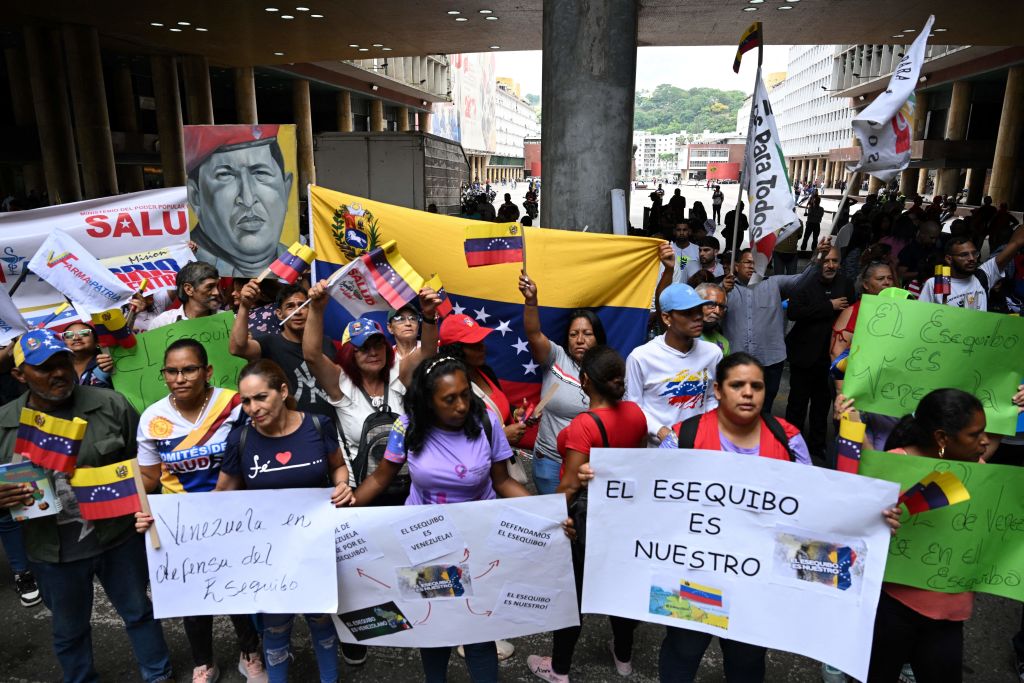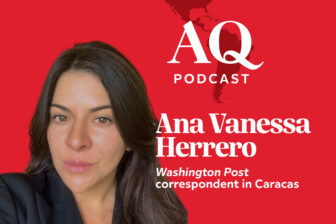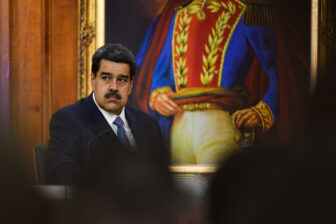GEORGETOWN, Guyana — The longstanding row over the border between Guyana and Venezuela has risen to a level of unprecedented tension in the relations between our countries.
The boundary between Guyana and Venezuela has been settled by treaty and a binding legal process that Venezuela initiated 124 years ago. By the 1897 Treaty of Washington, Venezuela agreed with the British that the arbitration would be a “full, perfect and final settlement” of the boundary. The so-called “Arbitral Award” was handed down in 1899.
However, Venezuela has refused to recognize the results of the arbitration since 1962 and has claimed that she was despoiled of the Essequibo region. Situated west of the eponymous Essequibo River and comprising more than two-thirds of Guyana’s landmass, the territory is controlled and administered by Guyana in accordance with the 1899 ruling.
Despite the treaty obligations, juridical delimitation, acceptance of the award, and the fact that Venezuela acted in accordance with it for nearly 63 years, Venezuela has consistently embarked on a pattern of subversion, threats, and intimidation to fulfill its territorial ambitions and/or force concession by Guyana.
More recently, the waters off the coast of the Essequibo have been found to contain one of the world’s largest crude oil deposits. In light of this, President Nicolas Maduro has begun to make moves to assert control over the region. In January 2021, Maduro escalated tensions by making a vow to “reconquer” the Essequibo region, which is a Guyanese sovereign territory in the eyes of the international community.
The 1966 Geneva Agreement (between the UK/British Guiana and Venezuela) was signed before Guyana’s independence, and through this accord, Guyana and Venezuela agreed to settle the latter’s contention of nullity and invalidity of the award by talks. If unsuccessful, the agreement mandates the United Nations Secretary-General to select a final means of settlement of the controversy. When, after 28 years of talks, the parties could not agree on a settlement, the secretary-general referred the matter to the International Court of Justice (ICJ).
On two occasions since the case was filed by Guyana in 2018, the ICJ has confirmed its jurisdiction over Guyana’s claims and announced that it would proceed to determine the validity of the Arbitral Award and the course of the land boundary.
In response, on September 23 of this year, Venezuela’s National Assembly passed a resolution calling for a referendum regarding its claim to the territory awarded to British Guiana in 1899. Furthering that resolution, the National Electoral Council of the Bolivarian Republic of Venezuela issued five questions for the national referendum scheduled for December 3.
Among the questions, all of which are intended to further Venezuela’s claim to more than two-thirds of Guyana’s territory, questions three and five are the most pernicious. Question three seeks to ratify Venezuela’s “historical position of not recognizing the jurisdiction of the International Court of Justice” as the means of settlement of the controversy, while question five seeks the approval of the Venezuelan people for the creation of a new Venezuelan state in Guyana’s Essequibo Region, which would be incorporated into the national territory of Venezuela, and the granting of Venezuelan citizenship and identification cards to the population.
The government of Guyana then approached the ICJ for provisional measures, specifically to request that Venezuela be ordered not to take any of the actions that would be called for by the referendum, including especially the “creation” of a new Venezuelan state consisting of Guyana’s Essequibo Region and incorporating it into Venezuela’s territory, or granting Venezuelan citizenship or identification cards to the population, because these actions would amount to an unlawful annexation of Guyana’s territory, in violation of the most fundamental principles of international law enshrined in the UN Charter.
Moreover, such actions would usurp the jurisdiction of the ICJ by presenting it with a fait accompli before the Court has had a chance to rule on Guyana’s claim of sovereignty over the territory under the 1899 Arbitral Award.
The Court will provide its decision on the provisional measures on 1 December 2023.
—
Persaud is the foreign secretary of Guyana.







